Jimmy Eat World's Jim Adkins: my 12 tips for guitarists
Songwriting, career and playing advice
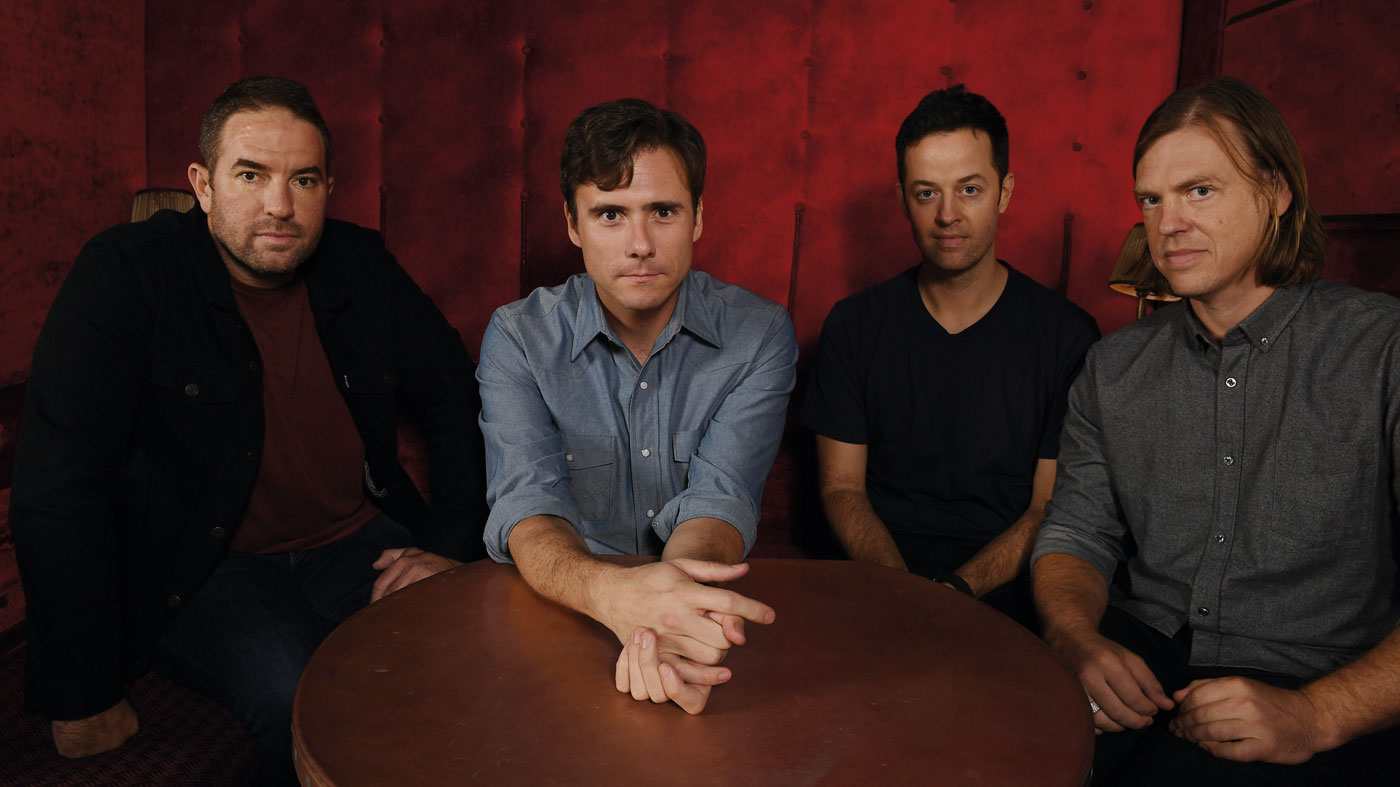
Introduction
As Jimmy Eat World release new album, Integrity Blues, we ask Jim Adkins to spill the secrets of their two-decade career…
For nine albums the Arizona four-piece have kept pushing forward
Jimmy Eat World are one of the most consistent bands in the business. Since 1996’s major label debut, Static Prevails, the band has mixed stratospheric hits (their 2001 commercial breakthrough Bleed American and follow-up, 2004’s Futures) with more modest success since, but they’ve never faltered.
For nine albums the Arizona four-piece have kept pushing forward - always evolving their sound, always trying new things, but never alienating the band’s large, loyal fanbase along the way.
Their latest record, Integrity Blues, typifies this mindset: blending ambient sounds and post-rock vibes to create something fresh and new. On the eve of its release, we sat down with guitarist and bandleader Jim Adkins, who shared his wisdom on writing songs, natural innovation, embracing technology, and why, after 20 years of making music, he still loves being in the same band.
Don't Miss
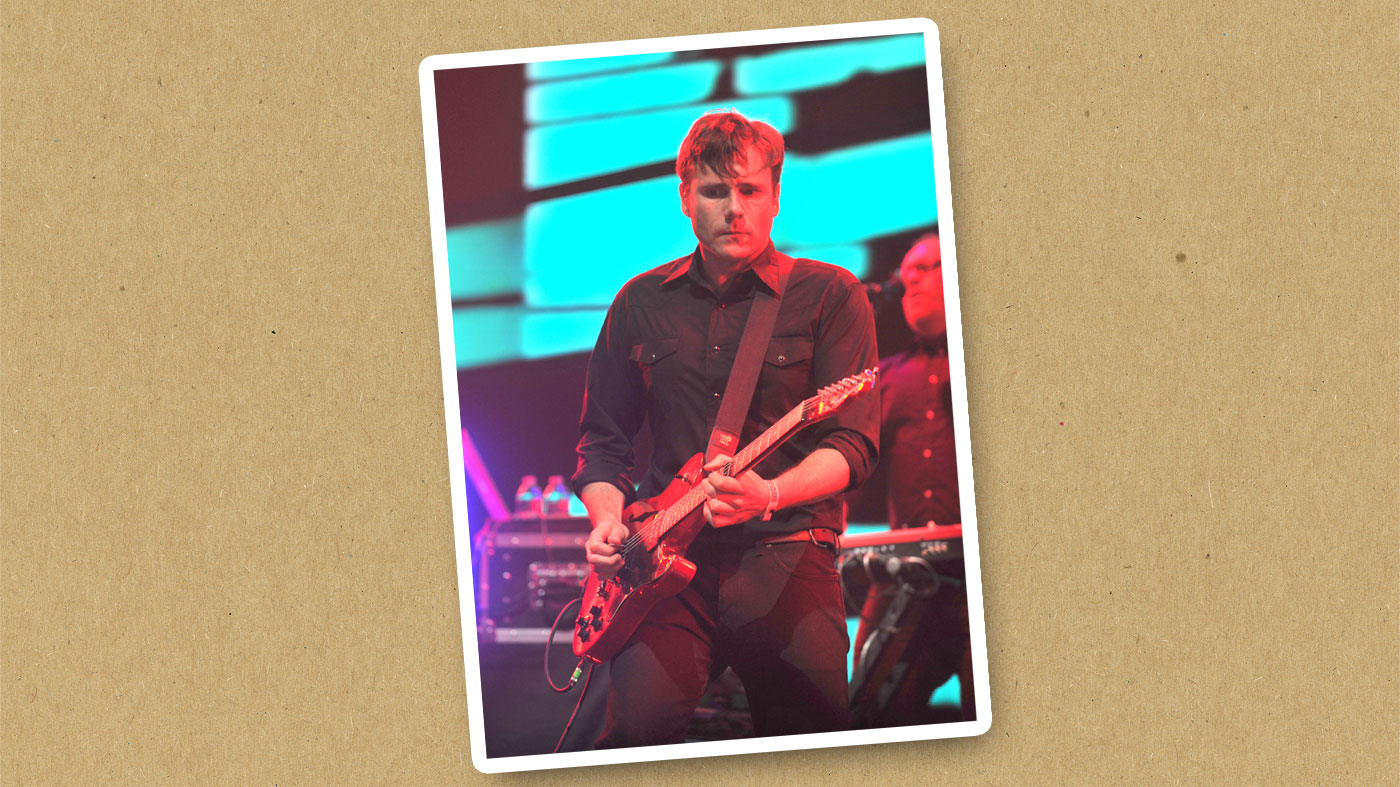
1. Don't live the dream
Keeping it grounded is also the key to keeping the creative juices flowing
“In the operating and execution side of all things Jimmy Eat World we try to make things fun! And we also try to protect what keeps it fun - the part where the music comes from.
It’s important to try to live in reality and live in humanity, rather than just trying to live the dream
“You’ve got to protect your sanity, you’ve got to protect your semblance of reality… because if you’re working as a band and you’re playing live a lot and travelling, it can get a little weird sometimes! So it’s important to try to live in reality and live in humanity, rather than just trying to live the dream - because that’s unsustainable.”
2. Try not to look back
Write from the heart, don’t worry about the expectations of others
There is something special about the record you discovered a band on, and it won’t matter what they put out after that - it won’t be as cool
“I think when people say our sound has changed a lot and evolved a lot… I don’t know what that means! [laughs] When people say they wish we’d make music like Clarity or Bleed American… I don’t know what that means, because in my head I am doing that! [laughs] Like, with our new stuff, I’m writing Jimmy Eat World songs - and that’s the same thing I was doing on Clarity or on Static Prevails.
“We get comments all the time like, ‘You guys need to go listen to Static Prevails and do that again’. [laughs] And I think what they’re really saying is that they want the discovery experience back.
“There is something special about the record you discovered a band on, and it won’t matter what they put out after that - it won’t be as cool, it won’t be as special as the record you discovered them on. It’s not about us it’s more about them.”
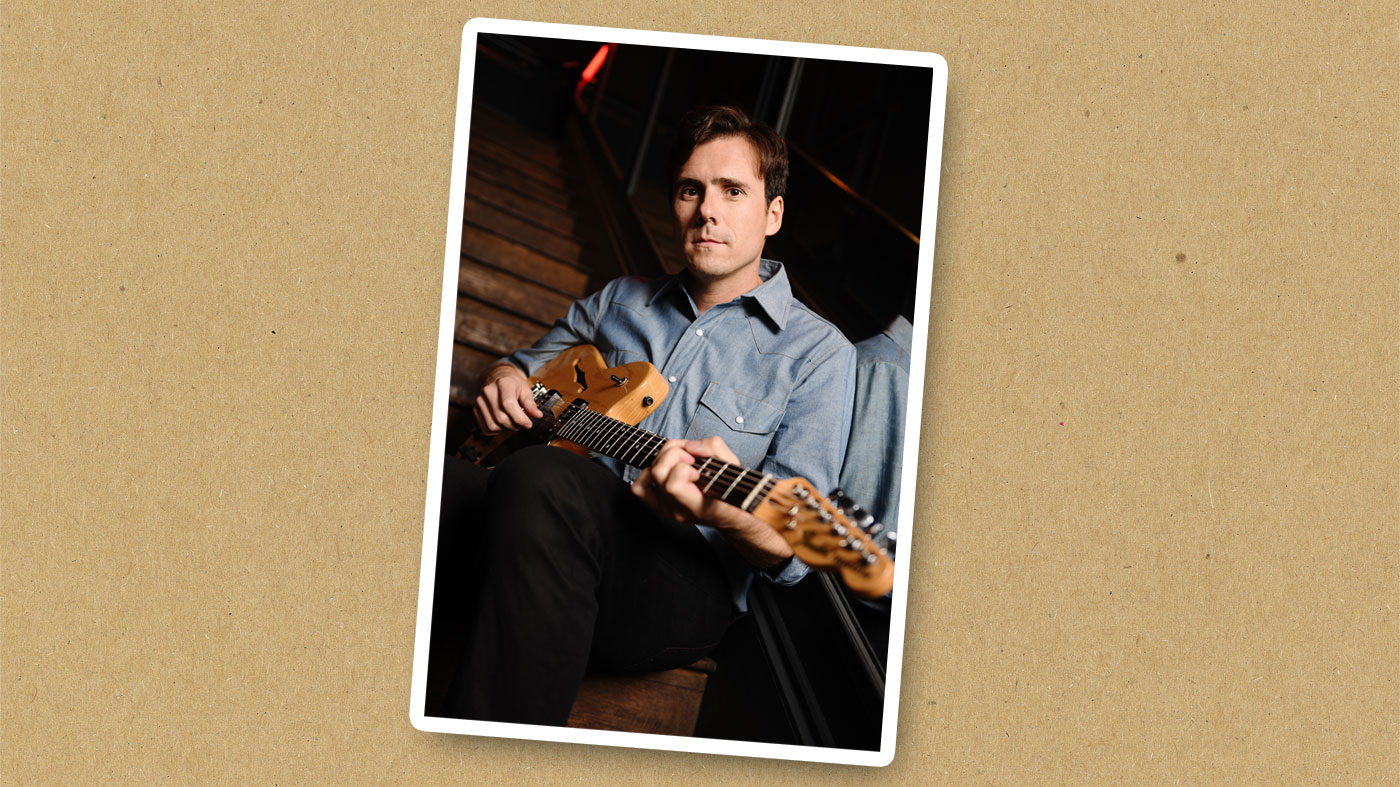
3. What's past is prologue
Discarded ideas can become good ideas in a different context
“Going in to make Integrity Blues, we took a good look at our big stack of discarded ideas.
The cool thing about working in computers for recording is that it’s really easy to cannibalise an old idea
“Over time we’ve compiled a whole lot of stuff, and going in to make this record we just kind of went to that pile, along with the recent things we’ve been working on, and just said, ‘Okay, let’s just assess it all, and let’s pick the things that we have a gut reaction to and work on that.’ The material for the album kind of came out of that.
“And the cool thing about working in computers for recording is that you don’t have to throw anything away, so if you’re working on something you’re stuck, it’s really easy to cannibalise an old idea that never really went anywhere. Even if an idea is like, three years old and got scrapped, it’s still going to go through the editing process of us as people now. And it might not end up anything like the original idea, but it’s a trigger for the work.”
4. The rhythm’s going to get you
Just getting a rhythm down can spark your stalled creative engine
Probably about 85 per cent of the material that’s come from me, it’s started off with me playing the drums first
“Probably about 85 per cent of the material that’s come from me, it’s started off with me playing the drums first. And then I figure out the guitar for that. Because, y’know, I’m not a drummer… [laughs] so what I’m going to do something musical that sits within the realm of what I can actually do - which is going to be pretty easy - and then I’ll write something to that.
“It’s my way of avoiding looking at a blank page and saying, ‘Okay write something’. If there’s no pressure and you’re just messing around having fun anyway… it’s a lot easier to respond to something than it is to generate something that’s totally new.”
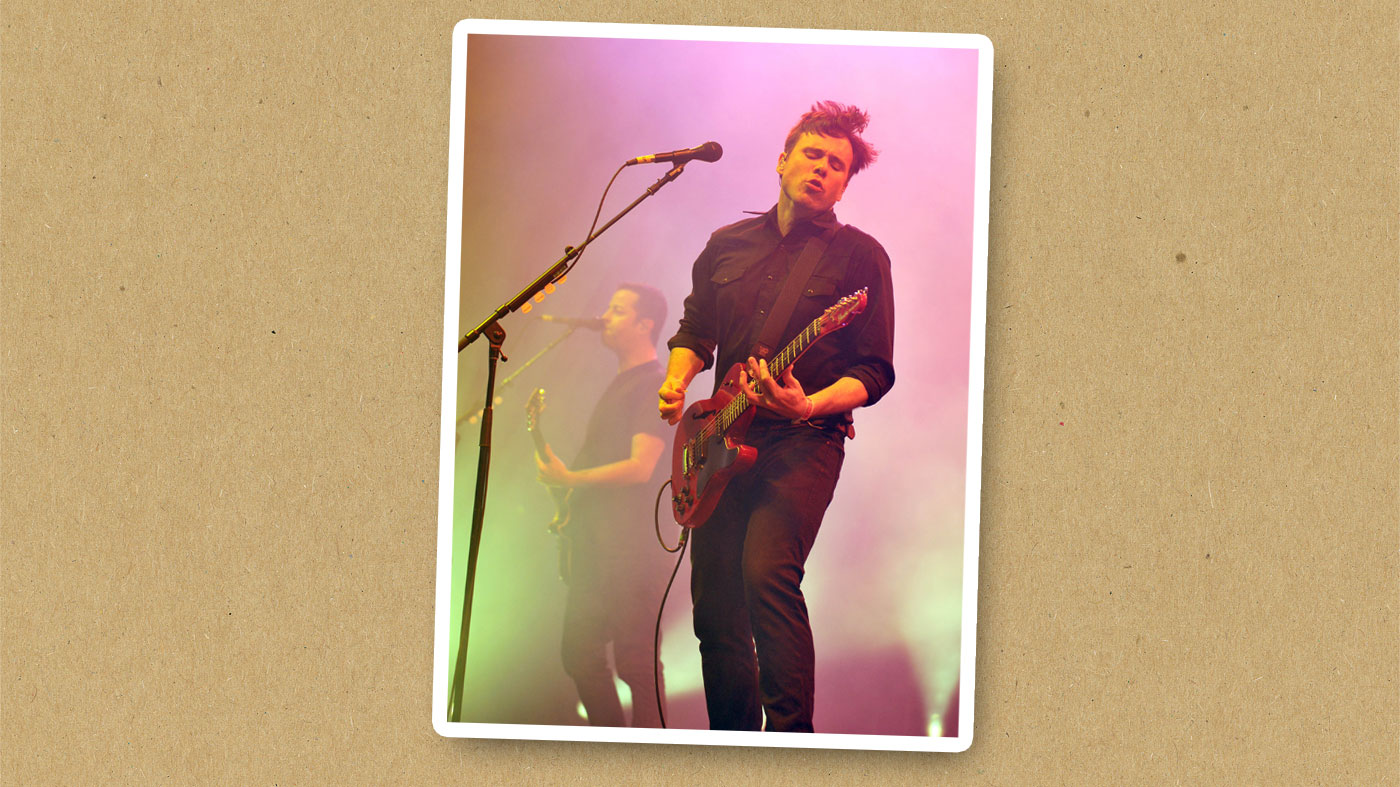
5. Don't think, feel
If the songs are flowing, don’t think about it too much - just go with it!
There’s a point for over-thinking, and there’s a point for just doing
“There’s a certain level to this that you don’t want to quantify too much, you just want to execute. There’s a point for over-thinking, and there’s a point for just doing. And, if something feels good, then you work to develop that. If something doesn’t feel good, then you start thinking, and start analysing where it’s going wrong.”
6. It’ll be all right on the night
Worry about making the best song - don’t worry about playing it live
When we start working on something, I don’t consider how easy or how hard it’s going to be
“I’ll write stuff that makes it really hard sing over! When we start working on something, I don’t consider how easy or how hard it’s going to be. It’s usually like after the first round of demoing gets over and I have the music more or less done, I’ll try to figure out lyrics… then I’ll try to play, and sing over it - and that’s when the reckoning happens! [laughs]
“But that can also change - because you’ll go through the process of recording, and all that goes out the window, and it’s purely about what’s best for the song. So you might end up with several guitar parts that weren’t your original thing… and you’ve got to transpose that now, and figure out how you’re going to play what you’ve recorded.
“So might get Tom [Linton, lead guitar] to do something that I did on the record because when you break down the elements of the song, it makes it easier for me to play something else - that happens all the time.”
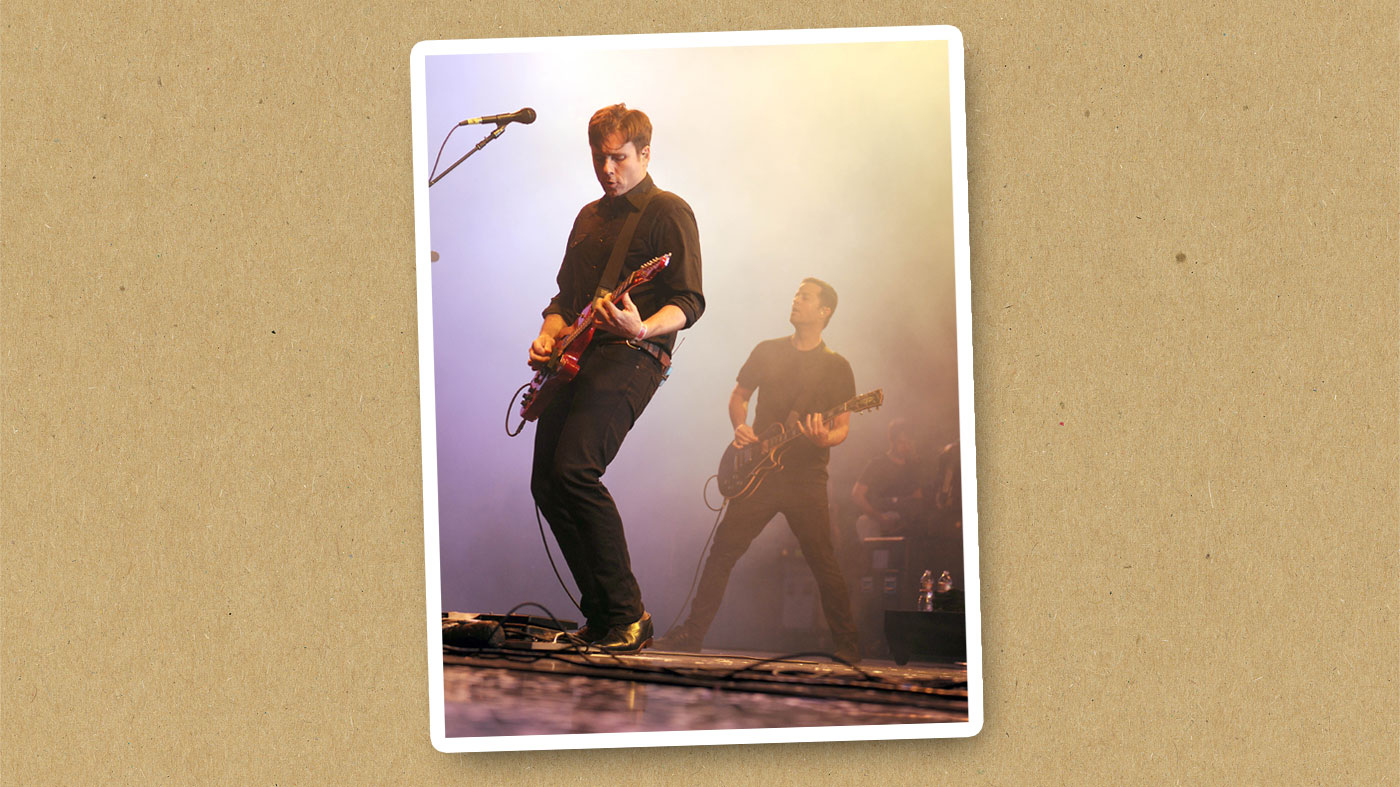
7. Don't be afraid of The Future
Old-school gear is great, but going digital is so much easier…
“We just switched to using Fractals for everything… for everything! It’s just sort of like, it’s kind of exactly the opposite of what we’re used to! But I felt like it’s kind of a move we had to made in order to do the new record justice.
There’s an extra layer of things happening on Integrity Blues that I can’t get with my regular set-up
“There’s just so much… there’s kind of an extra layer of things happening on Integrity Blues that I can’t get with my regular set-up. I’d have to fly around with the most insane pedalboard ever… or I can just use a Fractal! I’ve slowly been embracing MIDI… I’ve been using the TC Electronic G-Force for all my effect for a while, because I got sick of doing the Riverdance of pedals [laughs]. It’s a lot of work on the front-end, but on the execution part? AMAZING.”
8. Precious Things
You don’t need that massive amp to gig with - honest!
“The place that high-volume amps really shine, that you can’t replicate and will never be able to get by is recording… but that’s kinda it!
If you’re playing small clubs, and you have a half-stack on stage, you’re just killing people up front
“We used to play in basements and house parties with fucking two half-stacks and an [Ampeg] SVT refrigerator amp… but that’s so unnecessary! If you’re playing small clubs, and you have a half-stack on stage, you’re just killing people up front to make that thing sound good - you’re punishing the people who are most excited to see the show!
“And then the bigger places you get, the less that matters anyway, because your PA just gets bigger and more powerful. But, y’know, nothing feels as great as an awesome amp, in the same room with you… but you’d have to bring in people in individually to experience that [laughs] - it would be a horrible show!”
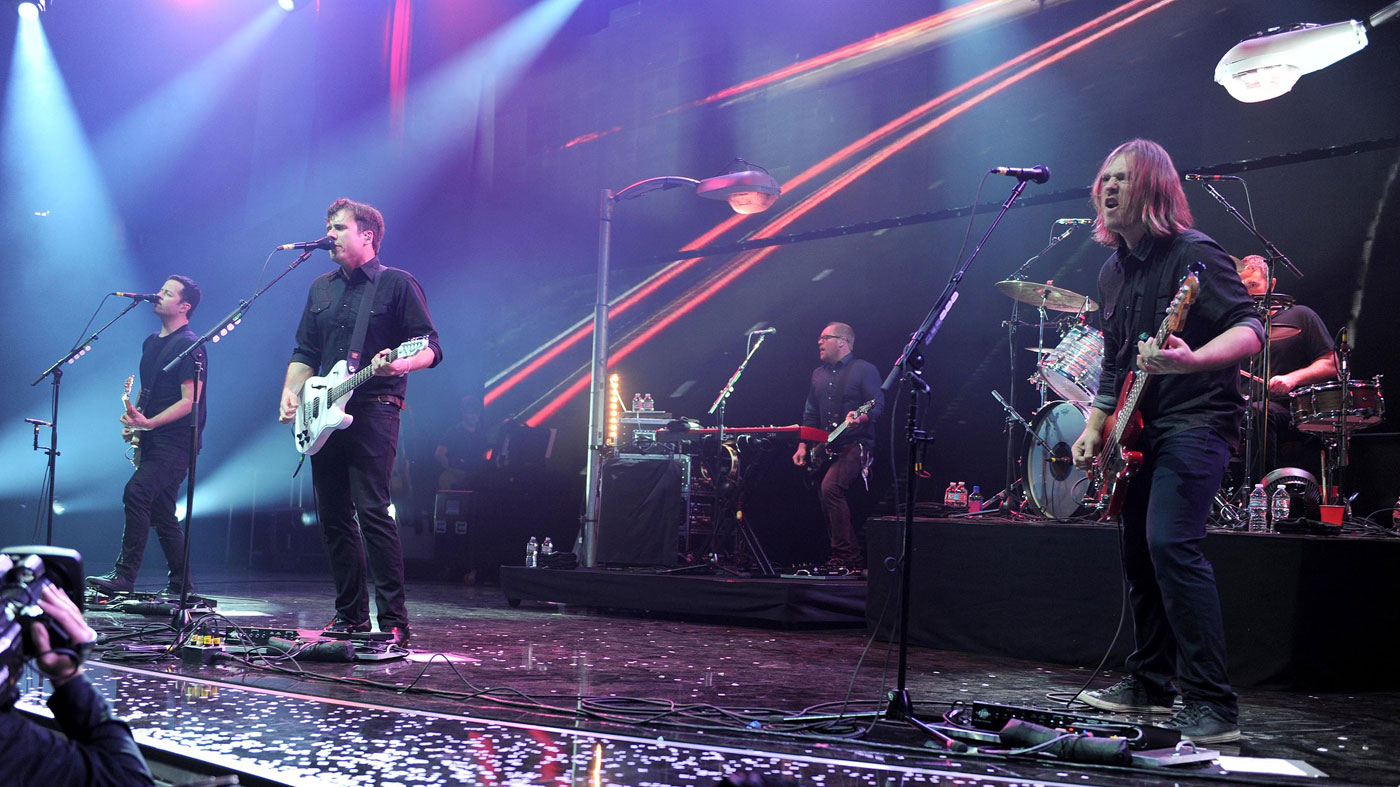
9. Fight Club
Band arguments aren’t necessarily a bad thing - if it comes from caring
“We learned pretty quickly early on that in the creative process, you just look at feedback with respect.
I wouldn’t want to work with people who weren’t so passionate about it
“We get into arguments all the time about creative direction and what we feel is working or doesn’t work… or what’s exciting, or isn’t exciting at all. But you can take a heated argument if you realise that you’re all fighting for the same thing - you’re all working to thoroughly vet the same thing. And thoroughly vetting your work gives a better result.
“And in a way, I wouldn’t want to work with people who weren’t so passionate about the work that the were prepared to get into an argument about it, y’know? I want that!”
10. Let it go
Write songs for yourself, but then accept it belongs to your audience
“The best way you can honour the music fan is to completely ignore them on the creation side of things.
The minute you start chasing the approval of some imaginary listener is when you start sucking
“I think you absolutely consider them and you consider yourself as a music fan when you’re presenting it - but on the creation side? The minute you start chasing the approval of some imaginary listener is when you start sucking - because there’s nothing that’s more of a turn-off than someone seeking your validation. And it just dilutes everything. Like I said, I do what I want to do and try to be honest with what I’m excited about. And I think people connect to the honesty in that.
“What makes music special is that you choose to take the time to invest yourself in a work, and you build your own associations with that work… and it’s yours! It’s no longer mine, it’s completely yours, and that’s what makes it special.”

11. Fun police
Never forget that making music is supposed to be enjoyable!
“I don’t understand how you mess this up! If you’re having fun, why would you mess this up?! It doesn’t have to take up that space that is ‘your job’ - it doesn’t have to be your primary source of income, it can be this thing that’s fun. It can be this thing that you work 40 hours a week to do.
If you want to do it, you can do it, but it has to be fun, otherwise what’s the point?
“If you want to do it, you can do it, but it has to be fun, otherwise what’s the point? Why do you even do it? If that’s the place that people find themselves in then by all means - stop! Stop and find something in your life - if it’s another band, or another pursuit entirely, just find that thing that gives you that reward.”
12. Tele addict
Jim on why he’s stayed true to his trusty Fender Thinline Telecaster signature model for a decade…
“I’ve been using the signature model since about 2006, and I don’t know… it just does everything I want it to do. It’s jangly enough where it works in the context of cleaner things, but it’s also got a bite to it so that I can do with more saturated sounds, too. It’s responsive… so depending on your gain structure with your amp, how hard you dig into it can affect what it does.
Depending on your gain structure with your amp, how hard you dig into it can affect what it does
“That’s one thing I recognised with [The Jesus Lizard guitarist] Duane Denison’s playing - he’s just going right in. How hard he plays, or the sensitivity of his playing, it really gives a lot of dynamics - and I guess I’ve set up my guitar to mimic that kind of approach.
“Besides me just liking how the Telecaster sounds, it got painful playing a Les Paul on stage, y’know? Our show is somewhat physical, and it hurts! A Les Paul hurts. Call me an old guy… but I’m an old guy! It hurts! I’m not doing that - I might not have been all that old in 2006 when I switched to the lighter Tele, and I loved my Les Paul Studio, and I still record with it sometimes, but on the road it’s all bout the Tele. It’s a marathon, not a sprint -- and I could see the writing on the wall…”
Jimmy Eat World’s new album, Integrity Blues, is out now on RCA.

